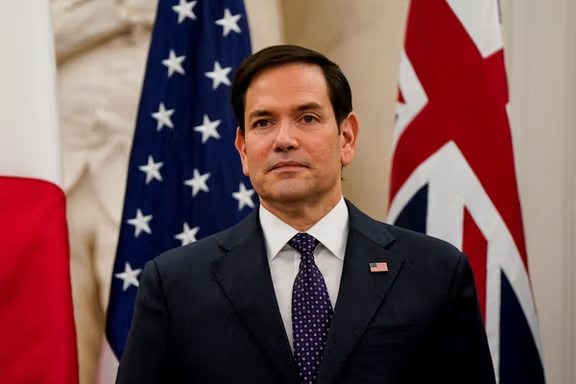Trump will seek snapback of UN sanctions on Iran, Rubio says

President Donald Trump will seek the restoration of United Nations sanctions on Iran which were lifted by a 2015 nuclear deal, newly sworn-in secretary of state Marco Rubio told congress.

President Donald Trump will seek the restoration of United Nations sanctions on Iran which were lifted by a 2015 nuclear deal, newly sworn-in secretary of state Marco Rubio told congress.
"I believe it is in our national security interest for the UN Security Council to snap back the sanctions that were suspended under the JCPOA," Rubio told the Senate foreign relations committee in written responses to Senator Ted Cruz, referring to the deal.
"I will execute the President's guidance and work with our allies to ensure that snapback takes place," Rubio added, according to the remarks read by Cruz at the confirmation hearing of Trump's pick for UN Ambassador, Elise Stefanik.
Rubio, Cruz and Stefanik are all staunchly pro-Israel and anti-Tehran and have signaled they will pressure Iran to hold back on support to armed allies and advancing its nuclear program.
"Pushing back on Iran is a top priority. It was a success during President Trump's first term," Stefanik said.
The so-called snapback of UN sanctions on Iran can technically be restored automatically if any party to the Joint Comprehensive Plan of Action (JCPOA) deems Iran to be non-compliant.
Then sanctions that were lifted under the JCPOA will snap back into place after 30 days unless the council's five permanent members unanimously vote to keep the sanctions lifted.
Trump pulled the United States out of the deal in 2018, arguing that the easing of sanctions gave Iran revenue to arm itself and regional allies like Hamas and Hezbollah. Now outside the deal, Washington cannot itself trigger the snapback but has promised to push for it in talks with its European allies.
Russia and China, whose relationship to the West is increasingly adversarial, have boosted ties with Iran in recent years and are unlikely to challenge it.
Activating the snapback would then fall to one of the three European countries, or E3, parties to the deal, France, Britain and Germany. Those powers are currently negotiating with Iran about future steps to salvage the agreement.
Britain has mooted willingness to eventually trigger the UN sanctions, citing Iran's advancements in enrichment which take it closer to being able to build a bomb.
If no party to the deal refers Iran to the Security Council by October 2025, their ability to trigger the sanctions snapback will lapse per the UN resolution clinching the deal.
Iran last year said it was prepared for either an agreement or continued tension.
"We believe the window for diplomacy is still open, albeit for a short time, provided the other parties demonstrate genuine willingness. Without such commitment, we will pursue an alternative course," foreign minister Abbas Araghchi said in November.
Senator Cruz on Tuesday fumed that the previous administration of Joe Biden had enabled Iran to make further nuclear progress, and that Trump must stop such an advance.
"When the Ayatollah chants Death to America. He means it, and I believe he would absolutely detonate a nuclear weapon over an American city if he could," Cruz said.
"I do not believe that this is a threat the US can tolerate, and I'm confident that both the President and Secretary of State Rubio agree."